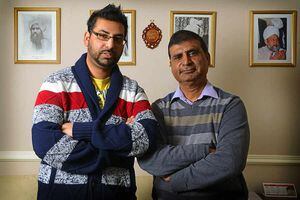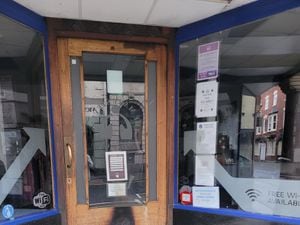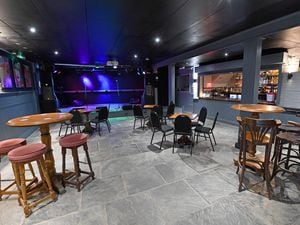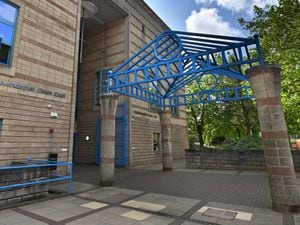Stamp out hatred of UK, says Wolverhampton Muslim leader
'I love my country,' Muhammad Yaseen Khan says.

It upsets the president of the Wolverhampton Ahmadiyya Muslim Association that there are people who have the same religious beliefs as he does but who commit murder in its name.
And he feels he has to make it absolutely clear the sense of patriotism he feels towards the United Kingdom, given that a small number of people of the same religion hold it in contempt.
Now the 64 year old is calling on the Home Office to monitor mosques more closely to stamp out radicalisation and hatred as police are working to prevent more young people, particularly girls, from wanting to go to Syria and join extremists in the so-called Islamic State (Isis).
Mr Khan also says what some white British people are afraid to for fear of being labelled racist, namely that Britain has been too open on immigration and has been abused as a result.
"There are preachers of hate, mullahs I call them, who have been let into Britain and allowed to stay without proper scrutiny," Mr Khan says.
"They are poisoning the minds of young people with their teachings.
"Sometimes it will be in mosques. But it is also on the internet as well. Their parents have a responsibility to check what it is they are doing online."
The Pakistan-born former solicitor has lived in Britain since he was in his 20s. He is now a social worker.
The association he leads gets involved in community clean-ups, visits the sick in hospital and has raised money for the Poppy Appeal.
His group is not the only sect that helps out and plays an active part in British society. But he believes all Muslims should.
And he refutes utterly the suggestion by members of the campaign group Cage, where former Wolverhampton University student and Guantanamo Bay detainee Moazzam Begg is a director, that the security services may share blame for being too heavy handed with suspects.
One of Cage's directors even suggested the Isis fighter known as Jihadi John, who has beheaded Western hostages, was once 'extremely kind, extremely gentle' before being harassed by the security services.
"It is not the security services," Mr Khan says. "Britain has done nothing wrong.
"If you don't want to live here, nobody would stop you leaving. Britain has provided us with peace.
"My life in Britain and the values this country holds dear are precious to me."
Mr Khan has watched in horror as recent atrocities have unfolded on the news.
From the so-called Islamic State straddling Iraq and Syria to the massacre of journalists on the satirical French newspaper Charlie Hebdo, the gunning down of school children in Pakistan or the murder of soldier Lee Rigby in London the crimes have been committed by people purporting to do so in the name of Islam.
"There is absolutely no defence, no justification, nothing but condemnation for any of this in any religion," Mr Khan says.
"This is the 21st century. It is the time of the pen, not of the sword."
Why, then, are 22 missing women and girls across the country currently feared to have gone to Syria to join and possibly marry the fighters, where they will live a life of servitude and obedience?
Shamima Begum, 15, Kadiza Sultana, 16, and 15-year-old Amira Abase flew from Gatwick to Istanbul on February 17 and are feared to have continued to Syria to become so-called 'jihadi brides' with IS militants. It has since emerged that the three teenagers were among seven schoolgirls who were handed letters by the police about another 15-year-old who ran away to Syria in December.
"A lot of boys and girls are confused," says Mr Khan. "They're reading things on the internet and it is almost like the culture of celebrities. It seems glamorous to them. They think they want to be a part of it.
"The problem is a lack of understanding. And that comes from a lack of leadership."
He also wants to see more done to help young Muslims to be and to feel a part of British society.
His son Haroon, aged 32, works with association's youth arm.
The younger Mr Khan adds: "Britain is a place where people do not have to agree on everything.
"We can protest. We can complain. We can make our views known.
"And that's something young people need to know is thanks to Britain."
The older Mr Khan then makes what may be his most controversial view known.
"Friday sermons should be monitored by the Home Office," he says.
Friday prayers are the busiest time in mosques.
Mr Khan adds: "Any church in the UK would welcome people in on Sunday mornings. We should all be delivering a message of peace.
"If you go to a mosque you should be welcome, as you would be at ours. If there's nothing to hide there should be nothing wrong with someone from the Home Office being there.
"It should be part of all we do to love our country."
The Bait-ul-Ata Mosque, run by the Ahmadiyya Muslim Association on Willenhall Road, opened in 2012 and typically has around 80 worshippers in.
"The true teachings of Islam are crystal clear," Mr Khan says. "It's upsetting and it's distressing that terrible things have happened and that those despicable people responsible for them claim to have done so in the name of Islam.
"It is not Islam. We have to challenge them. We have to speak out.
"And we have to stick up for the United Kingdom.
"I love my country. All true Muslims, wherever they are in the world, love their country.
"What is happening in Syria is not in our name or the name of our prophet."





